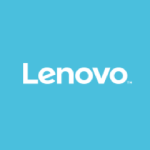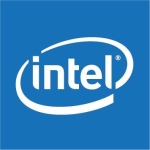What is our primary use case?
The ones we just bought are going to be hypervisor servers, and we have an on-premises Exchange that is running on a PowerEdge server.
How has it helped my organization?
The hands-off demand of the servers and the fact that they're not constantly a thorn in my side has been a big factor. They're running, and I don't have to worry about them. That is the most valuable part about it.
There is no downtime with these servers, and the system management capabilities of PowerEdge have helped increase staff productivity.
PowerEdge has, without a doubt, helped to reduce data processing time in our company. Every time we get a new PowerEdge server, we definitely notice an impact on the SQL databases that are part of our ERP. I do have users come and tell me that they've noticed that things have sped up and that even simple file searches are faster.
What is most valuable?
Dell PowerEdge servers are powerful. They don't break, and I love that. In my career of over 30 years now, all the Dell servers we've ever used out of the box have never broken.
On top of that, when we had an air conditioning failure and I came in after a weekend, the temperature in the server room was 110 degrees. Inside the cases themselves, it was over 220 degrees. The only thing we lost was a backplane on one of the servers. This alone speaks for the durability of the Dell servers, and we've never gone away from Dell servers ever.
They are fantastic in terms of performance as well.
As for PowerEdge's approach to security, I would rate it very high. The tools provided by Dell update the BIOS and everything else, and the software is running on the server at all times. It is proactive and alerts me. It's taken a load off of my shoulders compared to how it was 20 years ago. I would have to go to their site and find out what was new. Now, I can just go to the computer or the server, and right there, it will tell me what needs to be done.
The security is pretty strong. When we use ethical hackers to hack us, the Dell servers are never the issue.
In terms of power consumption, I have no complaints at all about PowerEdge Rack Servers. My server room's APC, which is a battery backup system, is a full-mounted rack. It handles all the power coming from all our PowerEdge servers. We have never once had to scale it up at all in the almost 20 years that I've been working with them. It's moving technology in and out nonstop, and it shows you that these servers are fantastic. They don't really shift that much in power needs.
What needs improvement?
Dell needs to focus more on SMBs, helping us get the most out of our products. For example, at events, there should be very specific SMB sessions where there are Dell technicians, engineers, and Dell executives meeting with us and finding out what we need. Dell is big on promoting the fact that they're part of our team and that they want to be our partners, and I would like to see them actually partner with us. Do it less with the big Fortune 500 companies and do a little bit more with us SMBs.
For how long have I used the solution?
I've been working this solution for the last 17 years.
What do I think about the stability of the solution?
For stability, there's really no other product that I would trust.
How are customer service and support?
Dell's support, throughout the years that we've used it, is typically fantastic, but, again, because the PowerEdge servers are so durable and good, I haven't used them as much. When I've had to contact them for other issues, they've resolved the issues within a week, if not a day or two.
How was the initial setup?
The initial setup is pretty straightforward. It's out-of-the-box, and I've never found a snag or anything like that in the process.
We deploy everything by hand; everything is manual.
It doesn't take that long, and we can even do it with our laptops and desktops. We do not do any ghosting or imaging, and a server usually takes me a day at the most, while I really take my time with it and get all the updates in.
What about the implementation team?
We do it ourselves, or we have one consultant that we use if it's something that is out of our wheelhouse.
What was our ROI?
Every time I don't have to work on something and my servers are just running without an issue, that is a return on investment for me. The fact that my coworkers and owners are never complaining to me about things being down all the time is the biggest ROI there is.
What's my experience with pricing, setup cost, and licensing?
I have no issues with the pricing and licensing costs. They are fine.
Which other solutions did I evaluate?
I looked at HP, and in a previous job, I've actually worked on HPs. I didn't love the HP servers. Even more so than the hardware, I couldn't stand HP's service and support. They're really bad.
When it comes to servers, Dell would be my first choice, and IBM would be my second choice.
We have one other server that is an IBM i-series server. (It used to be called AS/400.) If I were to compare it to the PowerEdge servers, there really is no comparison. It's a monster of a machine, and we have a lot more problems with that than we do with any of our Dell servers. Plus, it's finicky. The performance on it is questionable. You have to really baby it a lot more than the Dell servers, whereas the Dell servers are those that are the set-it-and-forget-it type. I work far more on issues with my applications that are running on the Dell servers than I ever do with the actual Dell servers themselves.
I would consider Dell and HP in the same area, whereas I look at IBM as being more specific. My only experience with IBM servers has to do with the AS/400 i-series Power9 line. Those are built specifically to house an ERP, whereas the Dell and HP servers are built to handle everything you need.
When it comes to the servers, I trust Dell PowerEdge Rack Servers. They're who I'm going to stick with. I don't consider HP to be a realistic competitor.
What other advice do I have?
If you are comparing Dell against anyone else, just get Dell PowerEdge. It's not even a question. The servers don't break, and they don't give you issues. Your applications are going to cause enough problems for you as it is, and you don't want the hardware they're sitting upon to also be another issue. After all, the servers were 220 degrees during an air conditioning outage and still churning and not causing problems!
If I were to rate Dell PowerEdge Rack Servers on a scale from one to ten, I would give them a nine.
Which deployment model are you using for this solution?
On-premises
Disclosure: My company does not have a business relationship with this vendor other than being a customer.















